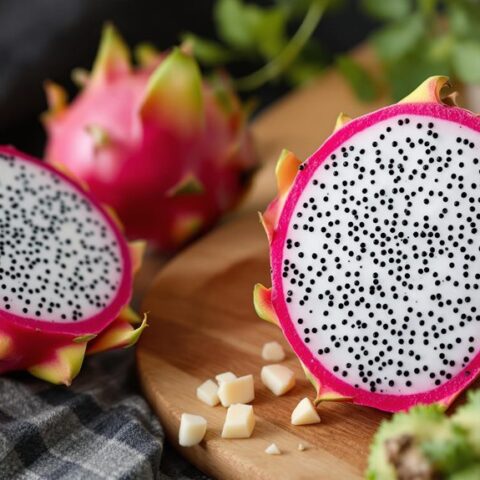
Mio can be considered keto-friendly as it contains low net carbohydrates and zero sugar, aligning with the low-carb requirements of the ketogenic diet. However, it is categorized as "Dirty Keto" due to the inclusion of artificial sweeteners like acesulfame K and sucralose, which lack nutritional value and may pose health concerns. These sweeteners might affect gut health and insulin sensitivity. Additionally, Mio contains artificial additives, the long-term effects of which remain uncertain. Regular monitoring of individual tolerance to these ingredients is advisable to balance short-term dietary goals with long-term health considerations. For a deeper exploration, continue onward.
Key Takeaways
- Mio is keto-friendly due to its low-carb nature, with 0 to 1 gram of net carbs per serving.
- It contains zero sugar, supporting the maintenance of ketosis.
- Classified as "Dirty Keto," Mio includes artificial sweeteners like acesulfame K and sucralose.
- Artificial sweeteners in Mio may trigger sweet cravings and affect gut health.
- Monitoring individual responses to Mio's ingredients is crucial for a clean keto approach.
Understanding Mio and Keto
When exploring the compatibility of Mio liquid water enhancers with a ketogenic diet, it's essential to contemplate both the nutritional profile and the potential health implications of the product. Mio is often considered keto-friendly due to its low-carb nature, as it contains zero sugar and supports ketosis.
However, its classification as "Dirty Keto" arises from the inclusion of artificial sweeteners such as acesulfame K and sucralose. These sweeteners, while carb-free, have been associated with health risks, particularly concerning gut health when consumed frequently.
It's important to note that insulin sensitivity plays a vital role in managing type 2 diabetes, and artificial sweeteners can sometimes negatively affect this. For individuals adhering to a clean keto diet, the presence of food additives like blue #1 and red #40 in Mio products poses additional concerns. These additives are generally discouraged due to their potential health implications.
Balancing the low-carb benefits of Mio with its nutritional drawbacks is significant for those prioritizing health alongside weight loss.
Moreover, the impact of Mio's artificial sweeteners can vary among individuals, necessitating careful monitoring of personal responses. While Mio provides a convenient low-calorie option, those committed to a health-focused ketogenic lifestyle should weigh the benefits against potential adverse effects and prioritize products that align more closely with clean keto principles.
Evaluating Mio Ingredients
Evaluating the ingredients in Mio liquid water enhancers reveals both their advantages and potential drawbacks, particularly for those following a ketogenic diet. Mio ingredients include artificial sweeteners like acesulfame K and sucralose, which are advantageous in that they provide a sweet taste without adding net carbs. This characteristic makes Mio seemingly keto-friendly, as it allows for flavor enhancement without compromising the low-carb requirement of the diet.
However, the inclusion of artificial sweeteners raises concerns about their impact on gut health. Frequent consumption may disrupt gut microbiota, potentially affecting overall wellbeing. Additionally, Mio does not provide any essential nutritional supplements for keto such as magnesium or omega-3 fatty acids, which are important for maintaining overall health on a ketogenic diet.
Furthermore, many Mio products are classified as "Dirty Keto" due to unhealthy additives like blue #1 and red #40, which are linked to potential health risks. These additives, while allowing for appealing colors, contribute nothing nutritionally, raising questions about their long-term health implications.
Though Mio products typically contain 0-1g of net carbs per serving, the presence of these unhealthy additives and artificial sweeteners may affect insulin response and overall health. Considering these factors, while Mio may aid in hydration without added calories, individuals should carefully assess their reactions and consider more nutrient-dense, low-carb alternatives for a healthier keto lifestyle.
Artificial Sweeteners in Mio
Mio liquid water enhancers utilize artificial sweeteners like acesulfame K and sucralose, which are carb-free and appealing for those adhering to a keto diet.
While these sweeteners help maintain ketosis, it's important to note that they can still trigger cravings for sweets in some individuals.
Frequent use of these sweeteners may pose concerns for gut health, and the broader implications of their long-term consumption remain under scientific scrutiny.
For those seeking alternatives, natural sweeteners such as stevia, monk fruit, and erythritol may offer better-tolerated options while supporting low-carb goals.
Sweetener Health Concerns
Exploring the sweetener health concerns associated with Mio, it is essential to take into account the inclusion of artificial sweeteners such as acesulfame K and sucralose.
While these components render Mio Keto-friendly by offering a carb-free solution, there are potential health implications to evaluate. Artificial sweeteners have been linked to insulin resistance, a condition that can undermine efforts to maintain ketosis by potentially affecting blood sugar levels.
Additionally, their impact on gut health is under scrutiny, as frequent use may disrupt the gut microbiome. Research on the long-term health effects of artificial sweeteners remains inconclusive, signaling the importance of monitoring individual reactions.
Some individuals might experience adverse effects, prompting a review of alternative sweeteners. Options like stevia, monk fruit, or erythritol present potentially healthier alternatives, as they are often perceived to have a less detrimental impact on gut health and overall well-being.
Gut Health Impact
While the potential insulin resistance linked to artificial sweeteners raises concerns for those on a keto diet, another vital consideration is their impact on gut health.
Mio liquid water enhancers incorporate artificial sweeteners like acesulfame K and sucralose, which are carb-free and attractive to those maintaining a low-carb lifestyle. However, frequent consumption of these sweeteners may disrupt gut microbiome diversity. Studies indicate that such disruptions can lead to gastrointestinal issues and affect overall well-being.
The gut microbiome plays a vital role in glucose metabolism and overall metabolic health. Alterations in microbiome diversity due to artificial sweeteners, as found in Mio, may influence glucose metabolism and potentially impact insulin sensitivity.
This is particularly concerning for individuals on a keto diet, who rely heavily on stable insulin and glucose levels to maintain ketosis.
Despite their benefits in helping adhere to a low-carb diet, the long-term consequences of consuming artificial sweeteners on gut health remain under investigation. Users of Mio and similar products should exercise caution and consider the frequency of use.
For those concerned about these impacts, exploring alternative sweeteners such as stevia or monk fruit may offer viable options without compromising gut health.
Alternative Sweetener Options
In evaluating alternative sweetener options, particularly in the context of Mio's ingredients, it is important to recognize the potential health implications associated with artificial sweeteners like acesulfame K and sucralose.
While these compounds guarantee Mio remains carb-free and low in calories, frequent use may disrupt gut health and could potentially trigger insulin responses in some individuals. This raises concerns about their suitability for those seeking to maintain ideal health on a keto-friendly diet.
For individuals on a ketogenic diet, exploring alternative sweeteners such as stevia, monk fruit, and erythritol could offer health benefits with fewer negative impacts compared to traditional artificial sweeteners.
These alternatives are not only low in carbohydrates but also less likely to affect insulin sensitivity, making them more compatible with keto dietary goals. Stevia and monk fruit are natural sweeteners derived from plants, while erythritol is a sugar alcohol known for its minimal effect on blood glucose levels.
Understanding the varying effects of artificial sweeteners on individual health is vital.
Those on a keto diet should consider consulting reference lists that categorize sweeteners based on their health impacts to make informed choices, guaranteeing alignment with their dietary goals and health priorities.
Impact of Sucrose in Mio
Mio, a popular water enhancer, often contains sucrose, a high-glycemic sweetener that poses challenges for those following a ketogenic diet. The presence of sucrose in Mio can considerably boost blood sugar levels, which is detrimental to maintaining the ketosis state essential for a low-carb, high-fat lifestyle.
Sucrose introduces unwanted carbohydrates into the diet, potentially hindering the fat-burning process central to ketogenic success. For individuals adhering to a keto-friendly regimen, monitoring blood sugar levels is essential. Even minimal amounts of sucrose can disrupt metabolic balance, leading to increased cravings for carbohydrates and potentially derailing dietary goals.
It's important to note that macronutrient balance is critical for keto success, and sucrose can interfere with achieving the ideal ratio of fats, proteins, and carbs. As a consequence, the inclusion of sucrose in products like Mio necessitates careful consideration by those committed to a ketogenic lifestyle.
In contrast, keto-friendly sweeteners such as stevia and erythritol present viable alternatives, as they do not cause considerable spikes in blood sugar levels. These alternatives allow for the enjoyment of sweetness without compromising ketosis.
Extensive lists categorizing sweeteners by keto effectiveness consistently rank sucrose as one of the least favorable options for those pursuing a low-carb diet. Thus, individuals following a ketogenic plan should be wary of sucrose-containing products like Mio.
Harmful Additives in Mio
Popular water enhancers, such as Mio, often contain synthetic additives like blue #1 and red #40, which pose potential health concerns for individuals adhering to a ketogenic diet. These artificial colors are linked to various health risks, including allergic reactions and hyperactivity in children.
Furthermore, some processed snacks and low-fat products also contain hidden sugars and artificial additives that can disrupt ketosis. For those committed to the keto diet, which emphasizes whole and minimally processed foods, the inclusion of such harmful additives can compromise the diet's overall health benefits.
Informed choices are essential for those on a keto diet seeking sustainable weight loss and peak health. It is vital for consumers to scrutinize product labels and understand the potential implications of consuming artificial additives.
While Mio provides a convenient way to enhance flavor without adding sugars, its use of synthetic colors warrants caution.
The keto diet is not merely about reducing carbohydrate intake but also about fostering a holistic approach to health. Opting for products free from artificial colors and similar additives aligns better with the diet's core principles.
As a result, individuals on a keto diet are encouraged to explore alternatives to Mio that do not contain harmful additives, thereby supporting their long-term health goals.
Comparing Dirty Keto Products
When examining Dirty Keto products like Mio Black Cherry Liquid Water Enhancer, the concern over unhealthy ingredients such as artificial sweeteners and food colorings becomes evident.
Despite their low-carb profile, the frequent consumption of additives like acesulfame K and sucralose may negatively impact gut health and raise questions about long-term well-being.
In contrast, nutrient-rich alternatives, such as natural sweeteners like stevia or monk fruit, are increasingly recommended to support both ketosis and overall health.
These sweeteners are popular choices in various keto-friendly chocolate brands, emphasizing the importance of choosing clean ingredients.
Unhealthy Ingredients Concern
The debate surrounding the health implications of "Dirty Keto" products often centers on their inclusion of unhealthy ingredients, raising concerns about the true cost of convenience in dietary choices.
Mio Black Cherry Liquid Water Enhancer, while low in net carbs, is a prime example. It contains artificial sweeteners like acesulfame K and sucralose, which may have adverse effects on gut health and overall well-being.
Additionally, harmful additives such as blue #1 and red #40 in Mio products have been linked to potential health risks, making them questionable choices for those adhering to a strict keto diet.
These ingredients highlight the complex balance between achieving short-term dietary goals and maintaining long-term health. It is essential for individuals following a keto diet to be mindful of these factors and prioritize nutrient-dense options.
Despite the convenience offered by products like Mio, they may not align with the health standards many keto dieters aim to uphold.
Key concerns with "Dirty Keto" products include:
- Use of artificial sweeteners that may disrupt gut health.
- Presence of harmful additives with potential health risks.
- Focus on low net carbs, overlooking overall health.
- Long-term sustainability of such dietary choices.
Nutrient-Rich Alternatives
Exploring healthier options becomes imperative for those adhering to a keto diet who are concerned about the potential health risks associated with "Dirty Keto" products like Mio.
While Mio offers low net carbs, its reliance on artificial sweeteners and processed ingredients categorizes it as a less desirable choice for a sustainable, healthy low-carb diet. Instead, incorporating nutrient-rich whole foods such as broccoli, olives, and mackerel can deliver essential vitamins and minerals, supporting overall health and maintaining ketosis.
Nutrient-dense alternatives enhance well-being and mitigate risks associated with processed products. Unlike Mio, these whole foods are minimally processed, ensuring that dietary goals are met without compromising nutritional quality.
They provide long-term health benefits, potentially preventing issues linked to artificial additives and promoting better adherence to dietary restrictions.
Artificial Sweeteners Impact
Artificial sweeteners, often found in "Dirty Keto" products like Mio, present a contentious topic for those committed to a ketogenic lifestyle. These additives, including acesulfame K and sucralose, offer a low-carb option, which aligns superficially with keto principles.
However, their regular consumption raises several concerns. Significantly, while they are carb-free, their frequent use may negatively impact gut health. Furthermore, they can elicit insulin responses in some individuals, potentially complicating strict adherence to a keto diet.
The inclusion of artificial additives like blue #1 and red #40 in Mio products further amplifies health risks. These substances may pose long-term health concerns, particularly for those who aim for a clean keto approach.
Consequently, individuals on a keto diet may benefit from reflecting on healthier alternatives. Options such as stevia, monk fruit, or erythritol provide sweetening without the associated health risks and are less likely to disrupt gut health.
Here are key points to reflect on:
- Artificial sweeteners may impact gut health negatively
- Potential insulin responses can complicate keto adherence
- Long-term health risks from artificial additives
- Healthier alternatives like stevia or monk fruit are recommended
Keto-Friendly Drink Options
When considering keto-friendly drink options, Mio's array of products emerges as a practical choice due to its minimal carbohydrate content, typically ranging from 0 to 1 gram of net carbs per serving. This makes it an attractive option for individuals on a keto diet who aim to maintain a low-carb lifestyle.
Mio utilizes artificial sweeteners such as acesulfame K and sucralose to provide flavor without adding carbohydrates, thereby preserving the essential low-carb nature of the product. However, it is important to recognize the potential downside of artificial sweeteners, as frequent use may impact gut health.
Hydration is a vital component of the ketogenic diet, as it helps to prevent dehydration and mitigate symptoms of the keto flu. Regular blood sugar monitoring is necessary for effective management when on a keto diet, helping to guarantee that products like Mio fit within your daily carb allowance.
Mio can be a flavorful addition to water, enhancing hydration without contributing to daily carb intake. Nevertheless, users should be mindful of the serving sizes to guarantee that they adhere to their daily carb allowance.
For those seeking alternatives, natural sweeteners like stevia and monk fruit may offer comparable flavor enhancements with potentially fewer health impacts, providing another viable option for those committed to maintaining a keto-friendly dietary regimen.
Purchasing Mio for Keto
How readily available are Mio products for those following a keto diet? Mio products are widely accessible, available for purchase on major retail platforms like Amazon and in grocery stores.
These products are often sold in multi-packs, providing a cost-effective solution for consumers. When purchasing Mio for a keto diet, it is vital to select flavors without added sugars to guarantee a low net carb intake. This consideration aligns with the dietary restrictions of keto enthusiasts who aim to maintain ketosis.
Familiarity with hidden sugars is key when selecting a Mio flavor, as these can lead to unintended carb intake.
For those interested in variety, seasonal flavors of Mio offer a delightful way to enhance hydration without compromising dietary goals. These limited-time options can be a rejuvenating addition to your routine, provided they meet the keto-friendly criteria.
- Check for promotions: Discounts and promotions are frequently available for bulk purchases, making Mio products more economical for long-term use.
- Read nutritional labels: Nutritional labels provide essential information, including net carb content, helping consumers make informed choices.
- Explore seasonal flavors: Limited-time seasonal flavors can offer variety, but always verify their compatibility with your keto diet.
- Opt for multi-packs: Multi-packs often offer a cost-effective way to stock up on your favorite keto-friendly Mio flavors.
Long-Term Health Considerations
As keto dieters enjoy the convenience and variety of Mio products, it is important to remain aware of the potential long-term health implications associated with their consumption. The use of artificial sweeteners like acesulfame K and sucralose in Mio may pose risks to gut health due to their potential disruptive effects on the microbiome. Over time, this disruption can adversely affect metabolic health and overall well-being. Additionally, the inclusion of food additives such as blue #1 and red #40 raises concerns about health risks tied to long-term intake.
| Concern | Impact on Health | Recommendations |
|---|---|---|
| Artificial sweeteners | Disrupt gut microbiome | Monitor gut health; consider alternatives |
| Food additives | Potential health risks | Limit consumption; opt for whole foods |
| Insulin response | May hinder weight management | Focus on balanced intake for metabolic health |
While Mio products offer low or zero-calorie hydration options, it is essential to prioritize a diet rich in minimally processed, nutrient-dense foods for sustainable health benefits. The regular intake of artificial additives in products like Mio might provoke insulin responses, potentially hindering long-term weight management and metabolic health goals. It's essential to evaluate how these additives affect individual health, as personal reactions may vary, influencing keto diet success.
Frequently Asked Questions
Can You Use Mio on a Keto Diet?
Mio flavors can be used on a keto diet, but with caution. Consider hydration tips and keto alternatives that prioritize healthier sweetener choices. Balance flavoring options with diet compatibility by opting for natural sweeteners, enhancing overall nutritional value.
Does Mio Stall Weight Loss?
Mio ingredients analysis reveals that artificial sweeteners may impact insulin response, potentially stalling weight loss. While offering flavor enhancement options for keto diet hydration, it's essential to evaluate health benefits comparison and explore alternative weight loss tips for balanced outcomes.
Does Mio Have Sugar or Carbs?
Mio contains no sugar and has 0-1g net carbs per serving, an analysis of its ingredients reveals. Consumer reviews highlight diverse flavor options and alternative uses for hydration, though health benefits are debated due to artificial additives.
Are Water Enhancers Keto-Friendly?
Water enhancers, including Mio, can complement a keto diet by offering low-carb drink mixes for flavor enhancement. However, Mio ingredients analysis suggests potential health concerns, prompting consideration of keto beverage alternatives that support hydration and electrolyte balance.
Conclusion
Mio's compatibility with a ketogenic diet depends on its ingredients, particularly the use of artificial sweeteners and the absence of sucrose. While Mio contains sweeteners like sucralose, which do not impact blood sugar levels, potential concerns about artificial additives and their long-term health effects remain. Comparing Mio to other "dirty keto" products highlights the need for careful ingredient scrutiny. For those adhering strictly to keto principles, exploring alternative keto-friendly drink options may be advisable to align with dietary goals.










No Comments